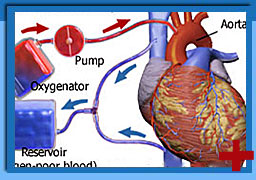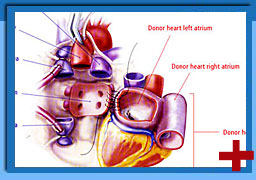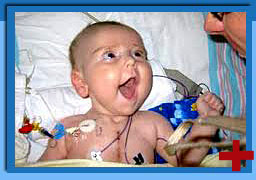What is a heart transplant ?
Heart transplantation is a surgical process which undertakes to replace a diseased or non-functioning heart with a healthy one. The surgeon removes the heart of patients by making a transaction in the aorta, the main pulmonary artery and the superior as well as inferior vena cavae, and then dividing the left atrium.
This leaves the back wall of the left atrium that has the pulmonary vein openings in place. After this, the donor’s heart is connected by sewing together the recipient and donor vena cavae, aorta, pulmonary artery and left atrium.
The donor for heart transplant is someone who is either brain dead or on ventilation. After removing the healthy heart from such a patient it is dipped in a solution before the transplant takes place.
With the development of surgical methods and techniques, heart transplant in India has taken to new heights. As the heart is an important life support system, transplantation is an important way of dealing with cardiac problems. Heart transplant in India became cost effective with the hospital surges turning effective for the foreigners.

Indications
This procedure can be recommended in the following cases:
- Severe heart disease since birth
- Cardiomyopathy
- Coronary artery disease
- Heart valve disease with congestive heart failure
- Life-threatening abnormal heart beats (when other therapies fail)
- Aortic disease
- Coronary artery disease
- Heart disease symptoms including angina, shortness of breath and palpitations.
- Vascular disease
- Congestive heart failure
- Atrial fibrillation and flutter
- Hypercholesterolemia and risk factor modification
- Myocardial Infarction
- Mitral valve prolapsed
Patients for whom this surgery is not recommended:
- Kidney / lung/ liver disease
- Insulin-dependent diabetes with poor function of other organs
- Blood vessel disease of the neck and leg
- Other life-threatening diseases

Who needs a heart transplant ?
There is a very careful selection of the patients who need this procedure. More patients need a transplant as their hearts can no longer pump enough to supply blood with oxygen and nutrients to the other organs. While the others have a good heart pump, but a bad “electrical conduction system” that determines the rate, rhythm and sequence of contraction of the heart muscle. This might become a reason of various problems.
Many people with “end-stage” heart disease where the heart is not functioning properly, but the other important organs should be in good shape. But if the patient is suffering from infection, cancer, bad diabetes mellitus, or smoke/alcohol abuse, they cannot undergo the surgery.
It is necessary that the patients should experience psychological testing that whether they can good in compliance with medications, changes in lifestyle and recovery after the surgery. Even the donor should also be well-matched with the blood type and body size of the patient.

Process of heart transplant in India
The heart that is preserved in a solution, is transplanted when the patient is in deep sleep or under anesthesia. The cut is made in the breastbone and the heart-lung bypass machine is used for the operation. This machine helps the supply of blood through the entire body and brain while the operation process is being conducted. The transplanted new heart later regulates the smooth flow of blood within the patient’s body. The hospitals are renowned for cost-effective Cardio surgeries having specialized surgeons. The department also specializes in treating other heart ailments like cardiac arrests and heart attacks where cardiac care and therapies are also done to assist the patients.
How does it affect the heart ?
The heart of the donor heart is matched to the immune system of the recipient. The patient has to take proper medication (immunosuppressive medication ) for preventing the immune system from rejecting the new heart. The risk of side effects, such as infection or cancer is also avoided.

Medical Follow-up
A patient of heart transplant needs regular checkups after the surgery to check overall health. At the time of visits, the doctor undertakes some blood tests for checking the level of the immunosuppressive drugs and other side effects. He also considers doing electrocardiogram, echocardiogram and Holter monitoring for monitoring the heart’s rhythm and function, or an endomyocardial biopsy for surveying the sufficiency of the therapy. The doctor also assesses patient’s coronary arteries annually, for monitoring any signs of narrow coronary arteries in the heart that has been transplanted.
To know more about Heart Transplant in India keep browsing our site Medical India Tourism and to book a medical tour to India please fill the given form.
